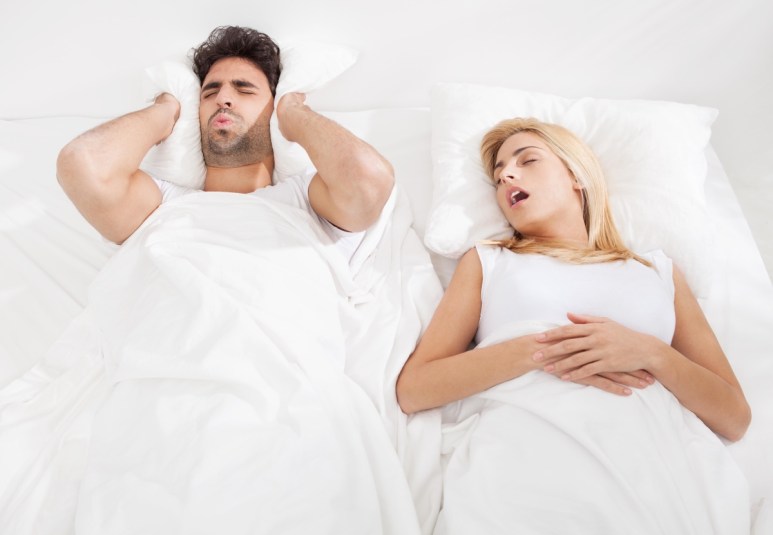For Certain Snorers, Mouth Taping Could Provide an Alternative to CPAP Machines
Is it safe? (And does it work?) A medical expert weighs in.

Anyone who has ever slept beside someone — a partner, a child, a best friend at summer camp — knows that we all make odd sounds while sleeping. From talking and moaning, to grinding our teeth, all of these sounds can be disruptive (both to the sleeper and the co-sleeper). But of all the slurps and chirps that we make while dozing, snoring is the most unsettling. Its rumbling, and often abrupt, tenor refuses to conform to the conventional rhythms of white noise — sounds that register but do not awaken — making it hard for those proximal to it, if not experiencing it, to get any sleep at all. It’s the reason CPAP machines are so prolific. They may look ridiculous, but they benefit the snorer and the snoree in equal measure. But what if your snoring is loud enough to disrupt but not loud enough to warrant a CPAP machine? There is an alternative, albeit a controversial one: Mouth taping, wherein the snorer literally seals their mouth shut with surgical tape. But does mouth tape for snoring really help? And is it safe?
A FIRST for Women reader and snorer wondered the same thing, and wrote in asking our consulting medical experts for advice. Here’s what they had to say.
Q: My husband has started complaining that I’m snoring. I heard that taping my mouth shut at night can help. Should I try it?
A: Mouth taping can be a good option for snorers, but I recommend getting evaluated for obstructive sleep apnea (OSA) before you give it a try. The reason? OSA occurs when muscles in the throat and tongue relax, factors that can narrow your airways and temporarily cut off breathing passages. If you have the condition, taping your mouth shut could further restrict breathing and reduce the amount of oxygen going to your brain, which can trigger next-day fatigue and brain fog.
If your doctor rules out sleep apnea, then you may want to try mouth taping. In a 2022 National Institute of Health study, mouth taping improved the median snoring index of 13 of the study’s 20 study participants (all of whom experienced mild OSA). The results suggest that, for those with mild OSA, mouth-taping could be an alternative to CPAP therapy or surgical intervention.
I recommend using porous surgical tape, like 3M Micropore Surgical Tape (Buy from Amazon, $4.69) and testing out the placement during the day to find what’s most comfortable for you. Make sure your nasal passages are clear and not congested so you can easily breathe through your nose. Typically, people place a small strip of tape vertically in the center of their lips, with enough space to be able to slightly open their mouth. (Click through to learn more about how mouth tape for sleep can improve health beyond snoring.)
Another strategy that can help, whether you have apnea or not: Wear compression socks during the day. Fluid that accumulates in the lower body throughout the day travels upward when you lie down to sleep, and the pressure it creates can constrict airways to trigger snoring. Research published in the the American Journal of Respiratory and Critical Care Medicine found that compression stockings reduce fluid pooling, which can cut snoring when it’s time to sleep.
Meet the Expert
Heather Moday, M.D., is director of the Moday Center in Philadelphia. She is board-certified in allergy and immunology, as well as integrative and holistic medicine. You can follow her on Instagram, where she shares information on health topics. And to ask her a question here, send an email to health@firstforwomen.com.
















